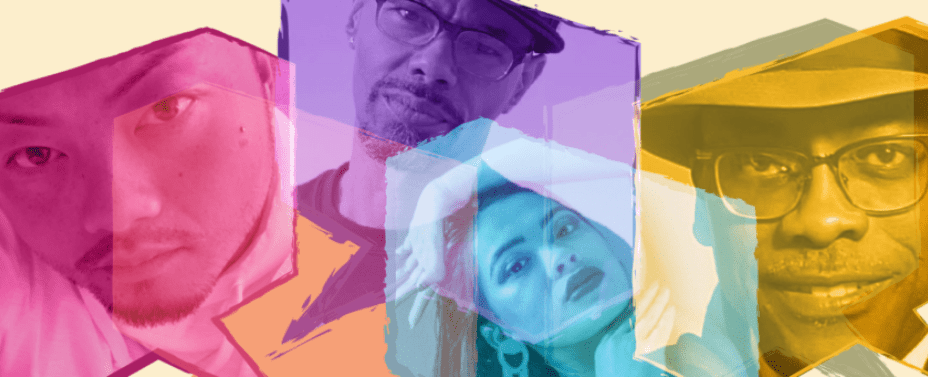Political Violence
From the Boston Massacre to Today

The Boston Massacre is most often thought of as a turning point on the road to the American Revolution. On that cold and moonlit night in March 1770, British soldiers fired on and killed five men outside the Old State House after a confrontation in the streets that was fueled in part by Bostonians’ collective anger at being under occupied by thousands of British troops for two years. In the coming years, colonial leaders built support for independence by calling out the British for perpetrating violence against its subjects.
This March 5, Revolutionary Spaces will mark the anniversary of the Boston Massacre by reflecting on the impacts that political violence of many forms leaves on a person, a community, and a society. Small groups of program participants will travel from room to room at the Old State House, engaging with poets and storytellers with roots in Cambodia, Haiti, Laos, and the United States who will speak to their personal experiences with the reverberations of violence by the state. In this Living Library format, program participants will hear each speaker’s story in turn and engage in respectful dialogue with them.
We hope participants will leave with a deeper grasp of the ways in which violence by the state sadly remains a universal human experience, as well as the importance of sustaining memory to make change.
This program is free thanks to the generous support of the Lowell Institute. Space is very limited and pre-registration is required to attend. Entrance times will be staggered every 15 minutes starting at 1:00 pm. This program will run for approximately one hour.

About the Participants
Princess Moon is a 2nd generation Cambodian-American award-winning poet, illustrator, muralist, teaching artist, and community organizer based in Boston, Massachusetts. Her storytelling work unearths conversations with ancestral spirits, trauma left behind by the ghosts of violent men, and the hauntingly beautiful journey of finding one’s self. As the daughter of refugees, her work as an artist is heavily informed by the Cambodian Civil War and America’s involvement leading up to the Genocide. Princess Moon has featured at the Boston Poetry Slam and the House Slam and presented the Keynote Speech at the 2016 Massachusetts Mental Health Forum. She is published in Merrimack Valley Magazine, Gateways Mag, Swift Collective’s Stop Asian Hate campaign, and in her first debut collection of poetry The Genocide’s Love Baby Learns to Sing. Currently, she is represented by Jill Grinberg Literary Management in NYC and is writing her second book. Princess Moon lives in Boston with her partner and their two sons. For more information, visit byprincessmoon.com.
Charlot Lucien is a Haitian storyteller, poet, visual artist, lecturer, and the founder of the Boston-based Haitian Artists Assembly of Massachusetts. He uses his art and writing to promote Haitian culture and advocate for many civil rights, public health, and humanitarian issues through his involvement with various cultural and civic organizations. He has been a long-term public health manager for the Commonwealth of Massachusetts and is a lecturer on Haiti-US historical connections with the OLLI Institute at the University of Massachusetts. He frequently participates as a guest speaker on Haiti’s culture and history in various academic and cultural venues in the United States. Lucien holds membership with various civic/humanitarian organizations, including the think-tank Groupe of Reflection and Action for a New Haiti, West African Research Association, Société des poètes francophones, Haitian Americans United Inc, The National Museum of African American History and Culture, and Haiti Projects. He is the recipient of several awards acknowledging his cultural contributions from the Commonwealth of Massachusetts, City of Boston, Haitian Roundtable 1804 Haitian Americans Changemakers List, and various cultural and academic institutions.
John Yang is the first student to transfer from prison to on campus as part of the Emerson Prison Initiative, which provides students incarcerated at Massachusetts Correctional Institution at Concord with an opportunity to earn a bachelor’s degree in media, literature, and culture from Emerson College. Yang has used this opportunity to juxtapose the two arenas of education and view in light (for himself) the difference of dynamics in teaching methods when considering college behind bars and standard college in the free world.
James ‘Jimmy’ Hills is a native of Boston and grew up in the very communities in which he has spent a lifetime advocating. He is a proud graduate of Boston Public School’s Madison Park High School. He honed his community-building skills while attending the University of Massachusetts at Boston and recently graduated from the Non-Profit Management Leadership Certificate Program at the Boston University Questrom School of Business. Hills’ professional experience includes serving his community in various nonprofit direct service and leadership positions. He has also served at the federal, state, and local levels of government. Hills is the Founder and President of the JAVA with Jimmy Podcast.
Dr. Nathaniel Sheidley is the President and CEO of Revolutionary Spaces. He was formerly Executive Director of the Bostonian Society and Assistant Professor of American and Native American History at Wellesley College. He is a graduate of Stanford University and holds a Ph.D. in American History from Princeton University. Sheidley is a programmatically daring historian whose leadership has reimagined public history at the center of Boston’s cultural landscape. His work is guided by a deeply held belief that public history at its best can do more than tell us about the past; it can also deepen our understanding of the present and equip us to build a more just and equitable future. Sheidley curated and provided creative direction for numerous exhibitions and programs, including Blood on the Snow, an immersive, site-specific work of theater written by playwright Patrick Gabridge that dramatizes the pivotal aftermath of the Boston Massacre in the very room where the events took place.

